Junior year made me stop being vegan
Veganism has many benefits for your health and the environment, but negative stereotypes and all-or-nothing biases are even harder than giving up your favorite foods.
I’m proud to say that I was, for a short time, probably one of the most laid-back vegans on this earth.
I went strictly vegan for about a year and a half before I converted to a sort of quasi-vegetarian. On my journey I learned several lessons about the pitfalls of dietary labeling and the importance of experimentation. As an experienced vegan, I feel obligated to give it some good press and share my experience.
And my main takeaway is this: strict labels like vegan and vegetarian are bad for vegans, vegetarians, and pretty much everyone else. They result in negative stereotypes, discourage people from attempting to eat less animal products, and put unnecessary pressure on people’s food choices.
According to Medical News Today, veganism is a practice of eating that focuses on plant-based food sources and excludes animal-derived products such as dairy, eggs, and even honey, and of course meat, poultry and fish.
When I decided to go vegan in October 2020, I hadn’t given it much thought. However, there are many different motivations people have for going vegan.
For one, veganism is much better for the environment than typical diets. A study by Oxford University concluded that widespread veganism could shrink humanity’s carbon footprint by up to 73%. Then there’s the obvious health reasons, the American Heart Association has concluded that eating meat can raise cholesterol levels, increasing risk of heart attack and stroke.
For me though, veganism was a commitment-free opportunity to experiment with new foods and maybe learn something. As soon as I discovered that Oreos were vegan there was nothing stopping me from going for it.
For a little while, the whole veganism thing was actually way easier than I thought it would be. I just subbed out the meat in our family meals Impossible Burgers, plant-based hot dogs and the like. It was an adventure to try all these new products and for the most part they taste pretty good. Even soy-based scrambled “eggs” are pretty good, and I didn’t even like real eggs that much to start with.
Vegan and vegetarian are terrible labels to begin with. They’re purely exclusionary, focusing only on what people don’t eat rather than what they do.
— Maya Hruskar '23
I explored a whole world of plant-based milks too. It took months to try them all: plain almond milk, rice milk, soy milk, coconut milk, quinoa milk and even pea-protein milk. There’s a bit of science to figuring out the differences. Some are good to sink your Oreos into but others are better for making sauces. And there are flavored and sweetened milks for milkshakes or smoothies. If you’re a coffee drinker, there are plenty of creamy plant-based products to add to your morning joe and Starbucks serves them too.
But, although veganism is good for the environment and your health, it’s also hard to stick to.
There were challenges in unexpected places. My morning bowl of Cinnamon Toast Crunch before school? You’d think it would be as simple as changing out cow milk for oat milk, but no. It turns out that breakfast cereals are fortified with vitamins to offset their lack of nutrition. Vitamin D3 is one of those added vitamins and it is derived from sheep’s wool which makes it technically an animal product.
Going out to restaurants with friends or family was also a challenge. Hitting the local pizza place is basically out of bounds, because what’s the best part of pizza? The cheese. You can get pizza without sauce, but without cheese? No.
Although vegetarianism is pretty much mainstream, saying that you’re vegan usually gets you an eyeroll. Vegans are perceived as pretentious, difficult and holier than thou. In fact, research shows that vegans and vegetarians are perceived more negatively than other people with diet restrictions, such as gluten-free.
It started gradually. First I made an exception for cereal, and I redefined myself as a 99% vegan. Nutella is a staple in my house and it contains some milk powder, so an exception had to be made there as well. 98% vegan is still pretty good. But, dessert items invariably contain eggs. Although there are plenty of gluten free options, baked goods made with egg-substitutes just aren’t the same. Ok, well, hens are going to lay eggs no matter what, so I allowed baked goods back into play. That brought me to somewhere around 80% vegan.
But the final straw was mac and cheese. There are as many plant-based versions of mac and cheese as there are varieties of plant-based milks, and I’m sorry, but they all suck.
At this point, I was more than a little confused about what I was defined as. Vegan with exceptions? I guess. Vegetarian-plus? Maybe. I was eating processed foods that had milk and eggs in them, but I wouldn’t eat either of those things straight up. Cheese is ok, but I still liked a sprinkle of vegan parmesan from time to time.
Meat is and probably will always remain something I choose not to eat, but nearly everything else was unclear. Eventually, I came to one fantastic solution: Who cares!
Vegan and vegetarian are terrible labels to begin with. They’re purely exclusionary, focusing only on what people don’t eat rather than what they do. This kind of divisive label only puts pressure on people to either conform to their label or give up entirely, rather than finding a healthy place on the spectrum of meat eating to veganism that fits their lifestyle and health. There are many considerations when choosing what to buy and what you put in your body. It should be a conversation starter instead of a reason to be judgemental.
So the next time a friend says “can we order something instead of pizza because I’m vegan,” just say sure and order sushi instead.
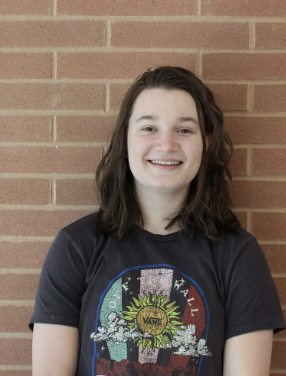
Creative Director, Maya Hruskar ’23, has had a passion for journalism since her freshman year. Not liking her traditional English class very much, Hruskar...












































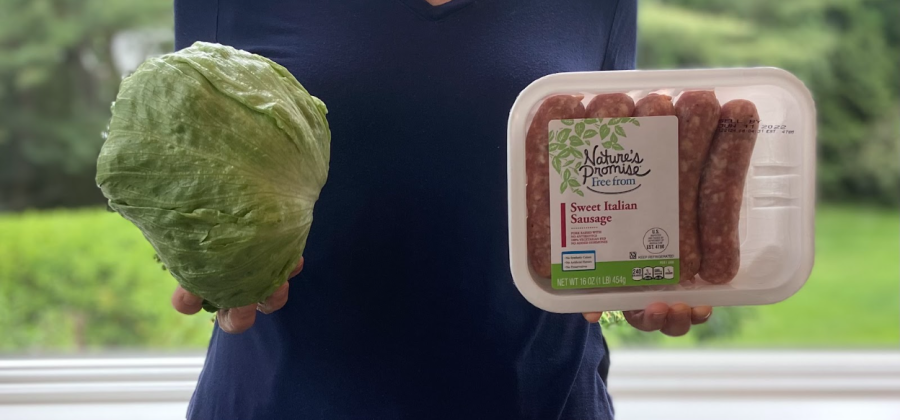
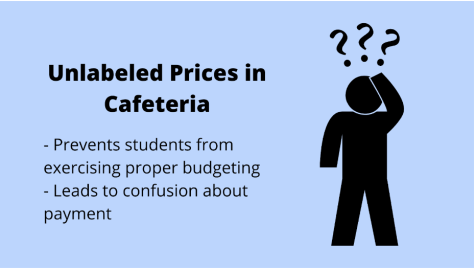
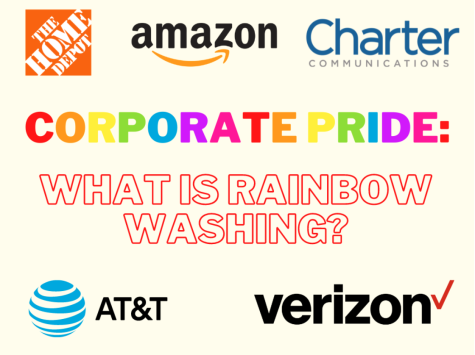
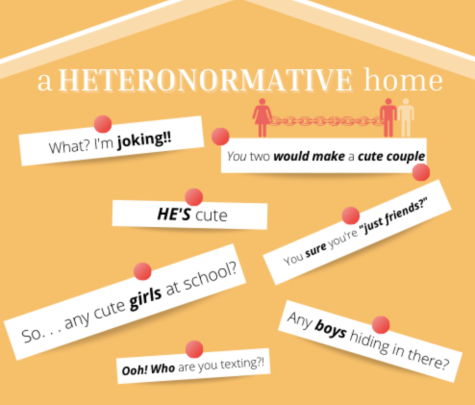
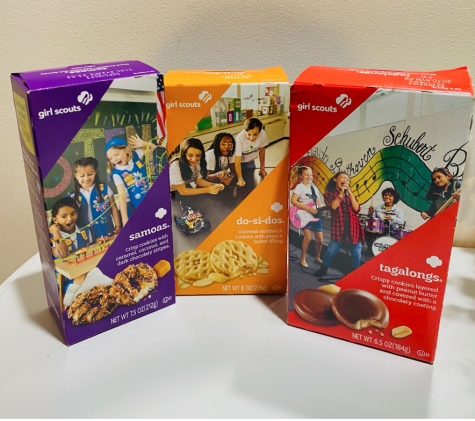
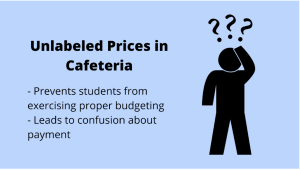
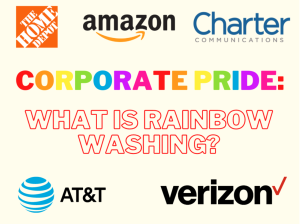
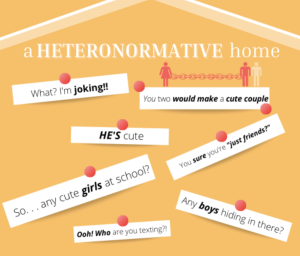
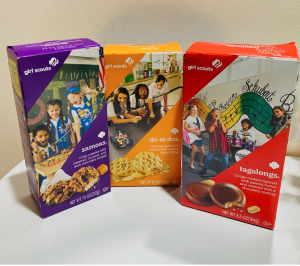










Queenie • Oct 8, 2022 at 8:20 pm
Pizza Hut makes the best vegan pizza. The cheese is very much like real cheese, I had it at my party, and nobody complained.
Leigh James • Jul 10, 2022 at 7:51 am
I’ve never heard such nonsense. It’s not the vegan label that’s divisive, it’s people not taking time to understand the fundamentals of what it actually means. It’s not a diet, and the scribe should know this having supposedly immersed themselves in it for a while. It’s at its core an animal rights issue. People who buy leather for example and eat vegan food aren’t vegan. They’re plant based. At least know what you’re writing about and why.
OracleSpeaks • Jul 7, 2022 at 11:19 am
Horrible article, this woman has no idea what veganism means, she was never vegan. She just simply ate plant-based! Veganism is an ethical choice, it’s about the animals, all her concerns were looking at the situation from her perspective, as the aggressor/abuser of innocent animals, If she gave her victims consideration, the better choices would be easier to make. Not to mention none of the animal exploitation is necessary, ALL PROTEIN ORIGINATES FROM PLANTS!
I’ve been an ethical vegan for over 13 years now and have had no problems maintaining being vegan for the animals.